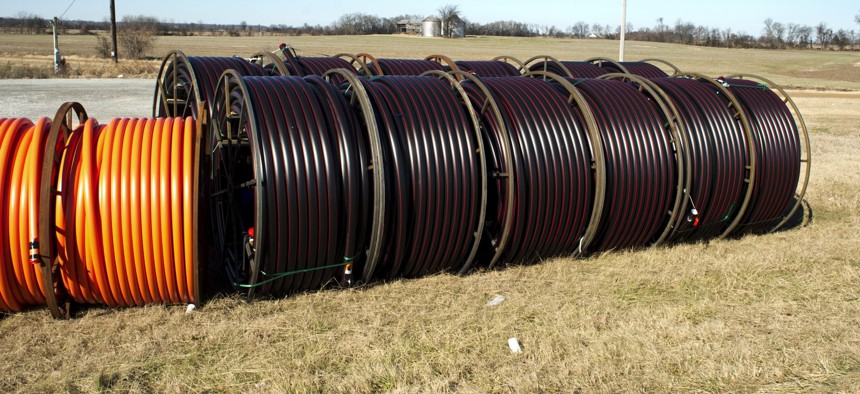Connect America Fund Aims to Boost Rural Broadband Expansion

Sherry Yates Young / Shutterstock.com

Connecting state and local government leaders
A new FCC agreement with Frontier Communications will direct large portions of funding to higher-speed Internet projects in Illinois, West Virginia and Wisconsin.
Frontier Communications Corp. accepted over $283 million from the Federal Communications Commission on Tuesday, under a program meant to expand broadband service in rural areas.
By taking the money, the company commits to providing service with download speeds of at least 10 megabits per second, to 659,587 homes and businesses, in 28 states, by the end of 2020. A number of other broadband providers are also eligible for federal dollars from the FCC’s Connect America Fund, and must decide by Aug. 27 whether to accept or decline the cash.
“This is a major step forward in the FCC’s efforts to ensure that all Americans have access to modern broadband and the opportunities it provides, no matter where they live,” FCC Chairman Tom Wheeler said in a statement, referring to Frontier’s decision.
Dan McCarthy, Frontier’s president and CEO, said in a statement on Tuesday that the company chose to accept the funds before the August deadline “because we are eager to start building the infrastructure necessary to provide service to these markets as soon as possible.”
In total, Frontier is set to receive $283,401,855 from the FCC.
The states where the largest portions of that money will be directed include West Virginia ($38,068,337), Illinois ($31,017,498) and Wisconsin ($30,983,715).
Companies that receive money from the Connect America Fund have to charge prices for service that are “reasonably comparable” to the average urban cost for broadband determined by the FCC, which is currently $52.50, according to commission spokesperson Mark Wigfield.
The 10 megabit per second minimum download speed required under the terms of the Connect America Fund is more than double the 4 megabits per second that the FCC says is adequate for activities such as streaming high definition movies, or video conferencing. The required upload speed is 1 megabit per second. Wigfield noted that companies may choose to build networks that exceed the requirements.
Some fiber-optic high speed Internet networks, such as those provided by Google Fiber, can allow for download speeds of up to 1,000 megabits per second.

NEXT STORY: Maybe not everything should be on DODIN





